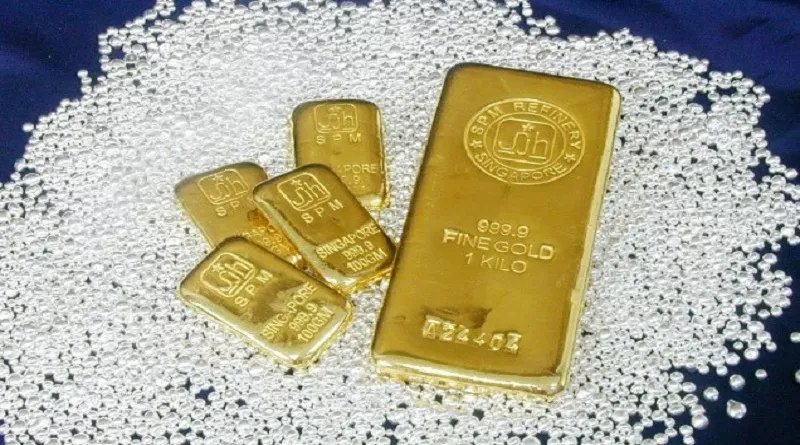Inflation is a financial phenomenon that erodes the purchasing power of your money over time. As the prices of goods and services rise, the value of your savings diminishes. To safeguard their wealth and investments against the effects of inflation, many investors turn to alternative assets, with gold being one of the most popular choices. Gold has a long history of preserving value during periods of economic uncertainty, making it an attractive option for those concerned about inflation. In this article, we’ll explore the relationship between inflation and gold futures, and how investing in gold can help protect your portfolio.
I. Understanding Inflation
Inflation occurs when the general price level of goods and services in an economy rises over time. This means that the purchasing power of a unit of currency, such as the US dollar, decreases. Inflation is typically measured as an annual percentage increase in prices and can result from various factors, including increased demand, supply chain disruptions, or changes in monetary policy.
When inflation is moderate, it may not have a significant impact on your day-to-day expenses. However, overextended periods of high inflation, the value of your savings can be severely eroded, as the cost of living increases faster than your income can keep up.
II. The Role of Gold in Inflation Hedging
Gold has a long history of being a store of value during periods of inflation and economic uncertainty. Here’s why gold is considered an effective hedge against inflation:
1. Intrinsic Value: Unlike fiat currencies, gold has intrinsic value as a precious metal. It has been used as a medium of exchange and store of value for centuries.
2. Limited Supply: Gold is a finite resource, and its supply grows relatively slowly compared to fiat currencies, which can be printed by central banks at will. This scarcity contributes to its ability to hold value.
3. Safe Haven Status: During times of economic turmoil, investors often seek safe haven assets like gold. The increased demand for gold can drive up its price, making it a valuable asset to hold when inflation is a concern.
4. Diversification: Gold provides diversification benefits to an investment portfolio. When other assets, such as stocks and bonds, may be negatively affected by inflation, gold can help offset losses.
III. Gold Futures as an Inflation Hedge
Gold futures are financial contracts that allow investors to speculate on the future price of gold without taking physical ownership of the metal. They can be a powerful tool for investors looking to hedge against inflation in the following ways:
1. Leverage: Gold futures contracts allow investors to control a significant amount of gold with a relatively small initial investment, thanks to leverage. This amplifies both potential gains and losses, making it possible to benefit from gold price increases.
2. Liquidity: Gold futures are traded on well-established commodities exchanges, providing high liquidity. This means that investors can enter and exit positions relatively easily.
3. Risk Management: Gold futures can be used for risk management by institutions and investors looking to protect their portfolios from the adverse effects of inflation. They can also be employed to hedge against potential price fluctuations in the physical gold market.
FAQs About Inflation and Gold Futures
1. How does inflation affect my investments?
Inflation erodes the purchasing power of your investments, potentially reducing their real value over time. This is why investors often seek assets that can protect their wealth from inflation’s effects.
2. Is gold the only hedge against inflation?
While gold is a popular hedge against inflation, other assets like real estate, commodities, and Treasury Inflation-Protected Securities (TIPS) can also serve as hedges. Diversifying your portfolio across multiple assets can provide more comprehensive protection.
3. Are gold futures suitable for all investors concerned about inflation?
Gold futures can be suitable for sophisticated investors who understand the risks and complexities of futures trading. Novice investors may find it more accessible to invest in physical gold or gold exchange-traded funds (ETFs).
4. Can gold prices fall during inflationary periods?
Yes, gold prices can fluctuate, even during periods of inflation. Various factors, including changes in investor sentiment, central bank policies, and geopolitical events, can influence the price of gold.
5. How do I get started with gold futures trading?
To trade gold futures, you’ll need a brokerage account that offers access to futures markets. It’s advisable to educate yourself about futures trading and consider working with a financial advisor who can provide guidance based on your investment goals and risk tolerance.
In conclusion, protecting your portfolio from the erosive effects of inflation is a crucial consideration for investors. Gold futures, along with other gold-related investments, can play a significant role in preserving your wealth during periods of rising prices. However, it’s essential to assess your investment objectives and risk tolerance before deciding to incorporate gold or gold futures into your portfolio. Consulting with a financial advisor can help you make informed decisions tailored to your financial goals and circumstances.
.

